”If my answers frighten you,
then you should cease asking scary questions“
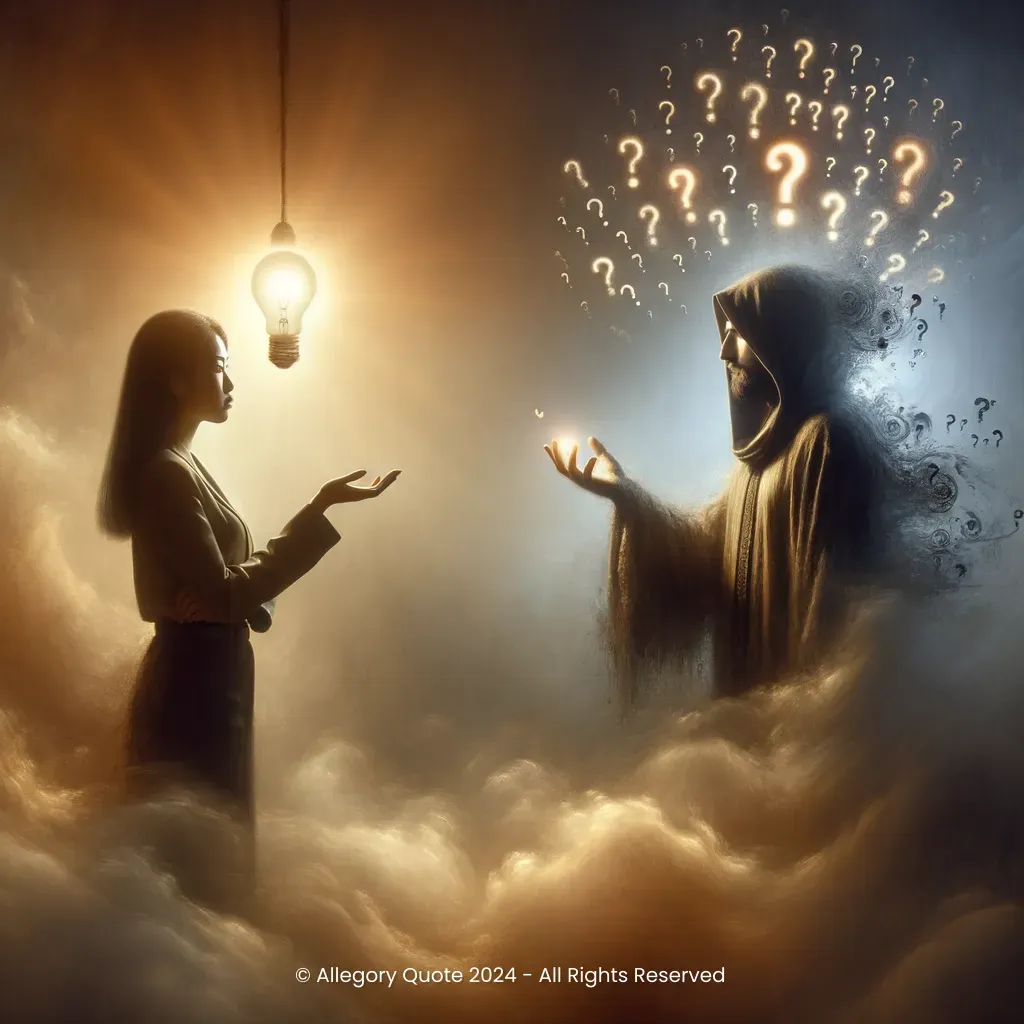
0
0
0
0
- Meaning
- This phrase speaks to the dynamic of communication—specifically, the idea that if one is disturbed by the responses they receive, they should reconsider the nature of their inquiries. It emphasizes personal responsibility in conversation and the choices we make in our interactions. Philosophically, this can connect to the notion of existentialism, where individuals bear the weight of their inquiries and their consequences. It's a clever way of pointing out that fears often stem from the questions posed rather than the answers themselves.
- Allegory
- The image captures the essence of the phrase by showcasing the contrasting emotions involved in dialogue: the fear instigated by daunting questions and the confidence required to confront them. The fog embodies the uncertainty of those inquiries, while the glowing light bulb symbolizes the clarity that comes from honest communication. The warm tones suggest hope in overcoming fear through inquiry and responsible dialogue.
- Applicability
- This phrase can be applied to personal life by encouraging individuals to think carefully about the questions they pose in conversations. If someone consistently asks questions that provoke fear or discomfort, it may be worth reflecting on why they are seeking those answers. It can serve as an invitation to foster a more balanced dialogue that does not dwell on negativity or confrontation.
- Impact
- This phrase has had a significant impact on popular culture, often quoted in discussions about communication, confrontation, and the darker aspects of human interaction. It reflects the film's overall themes of violence, morality, and the human condition. It has inspired discussions about the nature of questions we ask and the social norms surrounding conversation.
- Historical Context
- The historical context of this phrase dates back to 1994, the year 'Pulp Fiction' was released. This time period is recognized for its cultural upheaval and the emergence of independent cinema, which sought to challenge mainstream storytelling techniques. The quote captures the film's edgy tone and gives insight into the minds of its characters.
- Criticisms
- Criticism of this phrase can stem from the interpretation of its harshness or the notion that it may discourage open dialogue. Critics may argue that it promotes avoidance of uncomfortable topics, suggesting that all questions have value. Others might contend it reveals a fear of examining deeper, possibly painful truths.
- Variations
- Variations of this phrase can be found in numerous cultures, often reflecting the idea that challenging conversations can lead to growth. For instance, in some cultures, the act of questioning deeply can be seen as a pathway to wisdom, altering the interpretation of the quote's premise from confrontation to exploration.
-
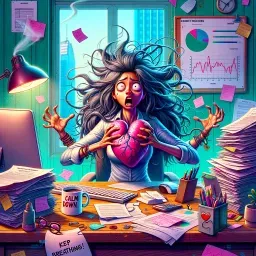
Now, if you’ll excuse me, I’m going to go home and have a heart attack.
-

You never fing mind, man. That’s your fing business.
-
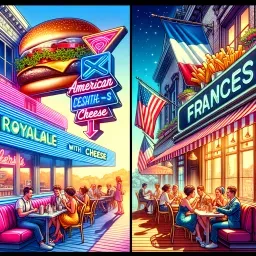
Do you know what they call a Royale with Cheese?
-

This is a tasty burger!
-
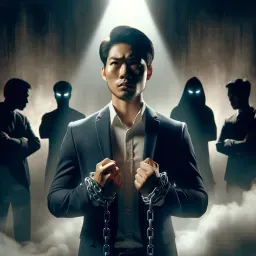
I don’t remember asking you a goddamn thing!
-

Be cool, Honey Bunny.
-
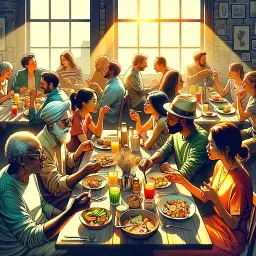
Looks like me and Vincent caught you boys at breakfast. Sorry about that. What you having?
-
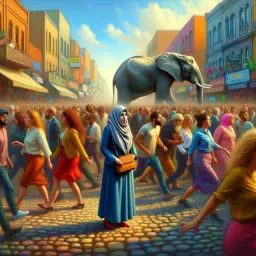
I just shot Marvin in the face.
No Comments